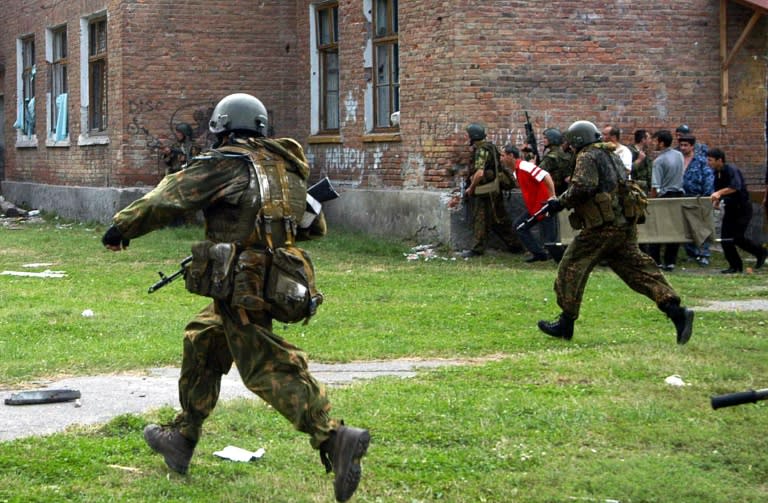Russia agrees to accept court ruling on Beslan compensation
A ruling by the European Court of Human Rights criticising Russia’s handling of the Beslan siege which left hundreds dead will not be contested, the justice ministry said Wednesday. In April the ECHR found "serious failings" in Russia's response to the 2004 school siege in which 330 people died, 186 of them children. It ordered Russia to pay a total of three million euros ($3.2 million) in compensation to 409 surviving hostages and relatives of the deceased. At the time, the Kremlin reacted furiously, saying the judgement was "absolutely unacceptable" and challenging it in a higher chamber, arguing that several of the court's conclusions were "not backed up". But earlier this week, the court rejected the challenge, effectively finalising the ruling -- which Moscow on Wednesday agreed to accept. In a statement, the justice ministry said the court's decision was now "deemed to have come into force", noting that it would not raise any further challenge. - Not done enough - In its earlier ruling, the court said the Russian authorities had not done enough to prevent the siege despite having "sufficiently specific information" about the attackers' plans. And it said the use of "lethal force by the security forces" had contributed to casualties among hostages. In response, Russia argued that the circumstances of the siege "needed a more in-depth and balanced examination", saying the ECHR ruling could "create problems for preventing acts of terror". Chechen militants demanding that Moscow withdraw troops from Chechnya attacked the school on September 1, 2004, holding 1,100 people, including 800 children, in a school gym rigged with explosives. After three days of negotiations, explosions inside the building prompted security forces to storm the school. The lawyer for the hostages and their relatives, Mikhail Trepashkin, on Tuesday said his clients were not pleased with the ECHR decision because it outlined "inadequate" compensation. The Beslan massacre was one of a string of brutal attacks Russia suffered in the 1990s and 2000s stemming mainly from an insurgency in Chechnya that morphed from a separatist rebellion into an Islamist campaign. There were two separatist wars in Chechnya in the 1990s and 2000s, but violence in the region has largely been suppressed under the iron-fisted rule of strongman leader Ramzan Kadyrov.



